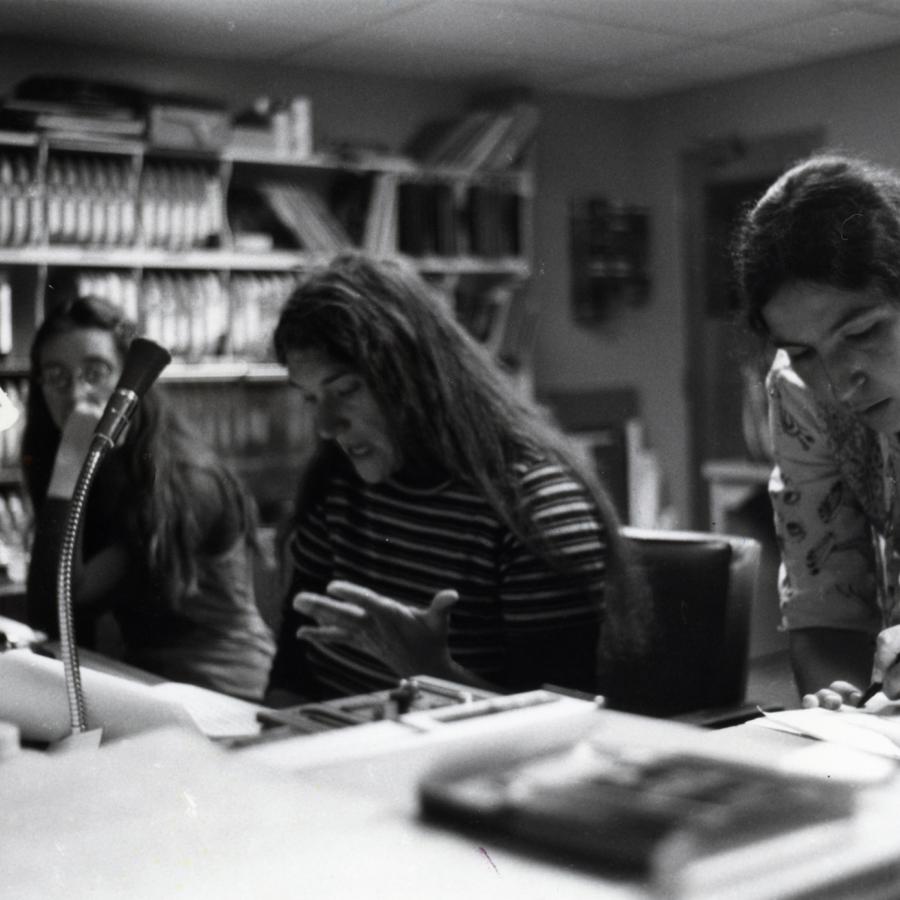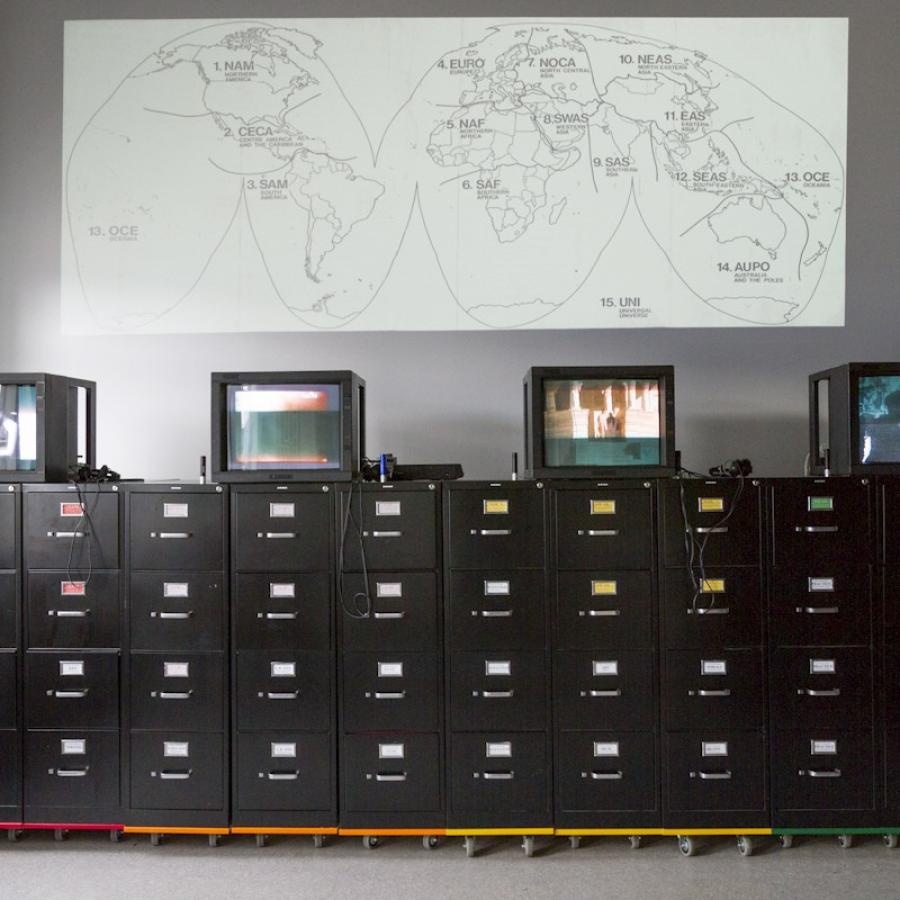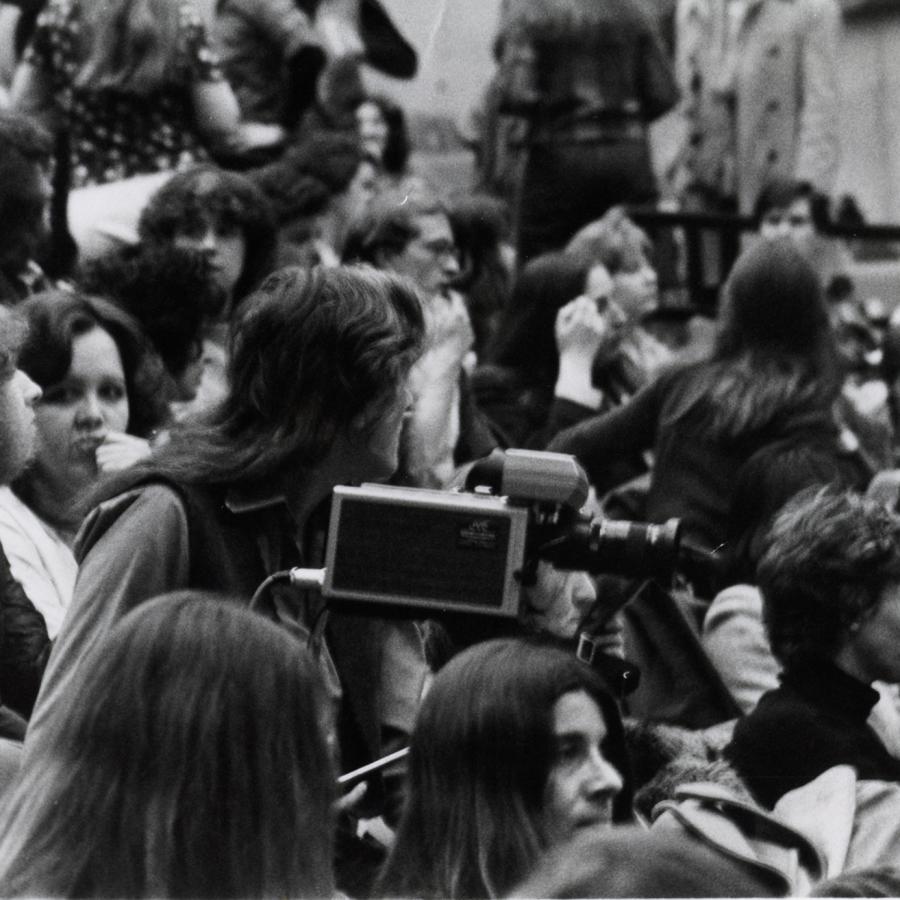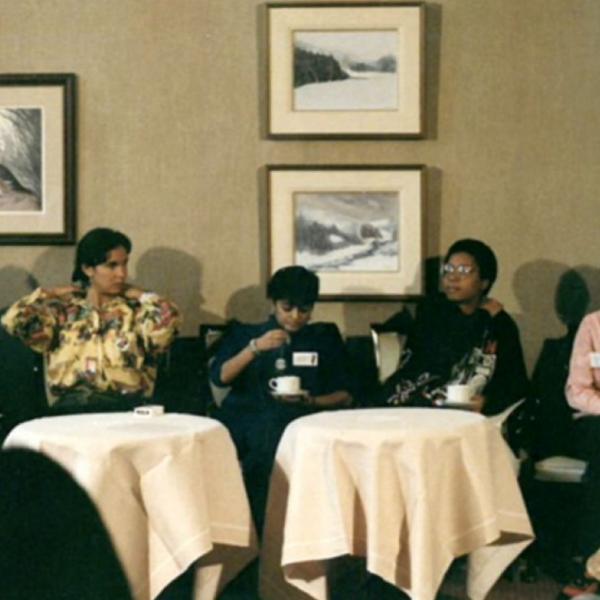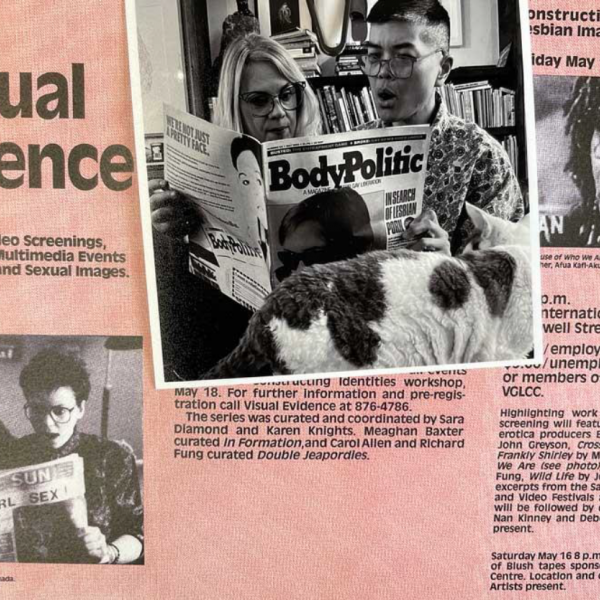This Case Study is researching the issues of gendered violence, asking how these have been represented historically, in what contexts, through what social networks, government policies, and judicial systems, and to what effect?
This Case Study’s multigenerational and intersectional research engages with VIVO’s archives, spanning multiple fonds and initiatives by women, LGBT2Q+, feminist and BIPOC media makers and activists. Researchers will develop understandings of the social ecology of collectives and collaborations, solidarities, and complex affiliations across generations and through settler and Indigenous community-based movements/initiatives responding to gendered violence.
The historical scope of this study is from the early 1970s when Vancouver’s first feminist media centre, Women In Focus, was formed, to the early 1990s following the establishment of the First Nations Video Access Program, and the In Visible Colours festival and conference that brought the local conditions of gendered-violence and representation into an international platform.
The working process will include workshops to address questions about collective/collaboration rights and (self) representation, and vulnerabilities of consent and ethical working practices 20 years on.
- How do we navigate the materials today?
- What voices were marginalized in early video activism and why?
- How do assumptions that gendered violence affected cis-women only, disproportionately harm LGBT2Q+ and gender non-conforming people?
- Are there examples, even in the 1970s, of material that expand beyond the collective representation on this topic?
Researchers will be investigating feminist media distribution history and the network of feminist counter-publics internationally and beyond cinema cultures; feminist administrative structures of artist-run centres; the porn wars and censorship resistance in the west coast context; the media activism of Chilean women artists and their intersection with Vancouver’s feminist art and Chilean communities; and cybernetic influences in postwar Canadian media and media theory. Responses and remediation will be undertaken by artists-in-residence and researchers.
About VIVO Media Arts Centre
VIVO Media Arts Centre is an artist-run media centre (est. 1973) in Vancouver, B.C. Their mandate is to directly support artists and independent community-based producers to develop, exchange, and disseminate their skills in a supportive environment through accessible services and programs.
Land Acknowledgement
Since 1973, VIVO Media Arts Centre (Satellite Video Exchange Society; formerly Video Inn and Video In Studios), has operated on the territories of xʷməθkwəy̓əm (Musqueam), Skwxwú7mesh (Squamish), and Səl̓ílwətaʔ/Selilwitulh (Tsleil-Waututh) Nations. As an organization that occupies space on unceded Coast Salish land, collecting and stewarding resources for media arts production and presentation while also forming and holding histories, we are inflected by colonial structures of funding, notions of artistic excellence, and institutional arts practice. We have a responsibility to better understand these influences and how we can work to form new relations and practices that support Indigenous self-determination and actively decolonize our institution and sector.
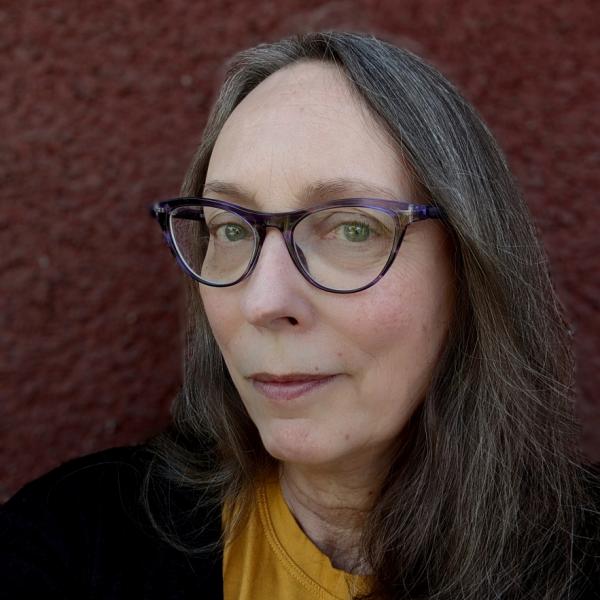
Karen Knights
Karen Knights is Manager of the Crista Dahl Media Library & Archive (CDMLA) and Development Officer at VIVO Media Art Centre (2013-present). She’s committed to the preservation and development of VIVO’s collection and oversees the CDMLA’s digitization projects of original media (most recently the Women’s Labour History Project Oral Histories; Celebration ’90 Gay Games III; Gayblevision community cable program).
Previously, Knights was active in the artist-run community as a librarian, video art distributor, curator, and anti-censorship activist (1984-2000). As an independent curator and critic, she has completed several historical surveys of archives held by Canadian ARCs and contributed to solo exhibition catalogues for Sara Diamond and Jin-me Yoon. Knights is a Board member of the Audio-Visual Heritage Association of B.C.
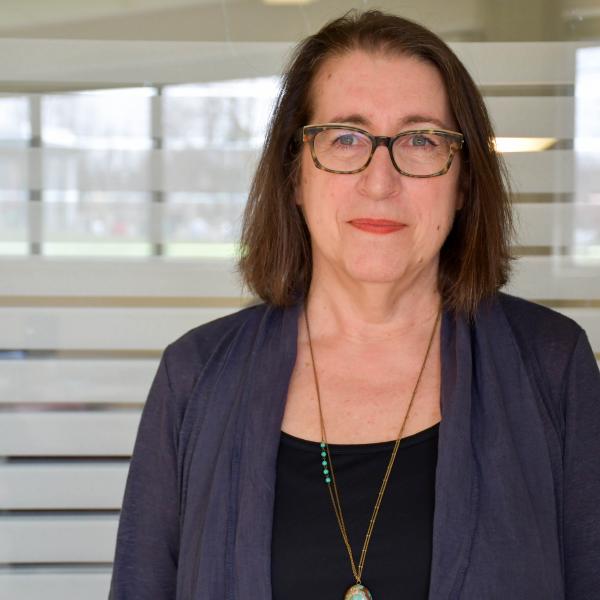
Susan Lord
Susan Lord is Professor in the Department of Film and Media at Queen's University and Director of the Graduate Program in Cultural Studies. She is the Director of the Vulnerable Media Lab (with Dylan Robinson and Rosaleen Hill). With a background in feminist and critical theory, her research has been dedicated to the histories of vulnerable media and in the remediation of these histories through curatorial and cultural events. These projects are necessarily collaborative, engaging with other researchers, cultural producers, policy and social actors to advance citizenship practices, expand the civic spaces, and decolonize the lands on which we live and work.
Her publications include two recent special issues of PUBLIC: Archive/Counter Archives and Havana (http://www.publicjournal.ca/issues/). A book on the Afro-Cuban filmmaker Sara Gómez is forthcoming in 2019. Other books include Killing Women: Gender, Violence and Representation (with Annette Burfoot); New World Coming: The Sixties and the Shaping of Global Consciousness (with K. Dubinsky, et al); Fluid Screens/Expanded Cinema ( withJanine Marchessault).
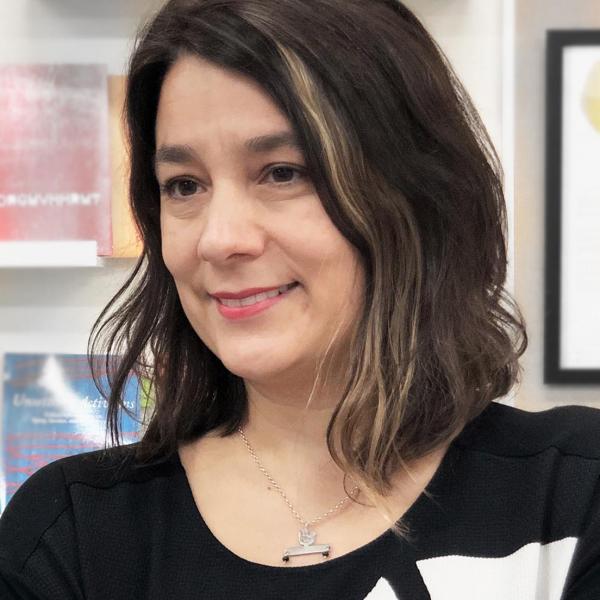
Gabriela Aceves Sepúlveda
Dr. Aceves Sepúlveda’s research bridges the histories of art, media, and technology with gender and women studies, and art and design practice. She is the author of Women Made Visible: Feminist Art and Media in post-1968 Mexico (University of Nebraska Press) and several peer-reviewed articles, book chapters, and research-creation projects on feminist media in Latin America, global networks of artistic exchange, aging and activism, and the histories of immersive technologies in the Global South. Currently, she is working on a book manuscript which explores the work of four Latin American composers working at the intersections of visual and sound art to suggest an alternative history of electronic music and twentieth-century avant-gardes. Her video and sculptural installations that explore the body as a site of cultural and gender inscriptions have been exhibited in Canada, Mexico, France, India, and Chile.
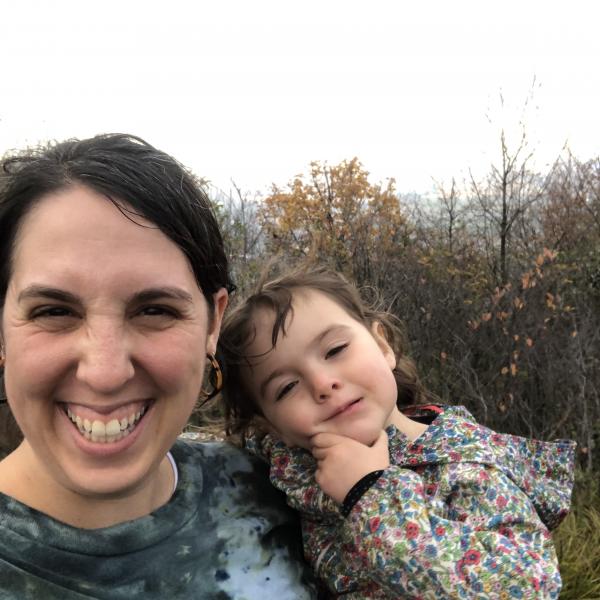
Amber Berson
Amber Berson is a writer, curator, and Ph.D. candidate conducting doctoral research at Queen’s University on artist-run culture and feminist, utopian thinking. She most recently curated Souper Spaghetti (2021, with Manon Tourigny), Utopia as Method (2018); World Cup! (2018); The Let Down Reflex (2016-2018, with Juliana Driever); TrailMix (2014, with Eliane Ellbogen); and *~._.:*JENNIFER X JENNIFER*:.~ (2013, with Eliane Ellbogen); The Annual Art Administrator’s Relay Race (2013, with Nicole Burisch); The Wild Bush Residency (2012–14); and was the 2016 curator-in-residence as part of the France-Quebec Cross-Residencies at Astérides in Marseille, France. She is a co-lead at Art+Feminism, a project that works for a more equitable Wikipedia and was the 2019-2020 Wikipedian in Residence at Concordia University. She is also the programming coordinator at articule.
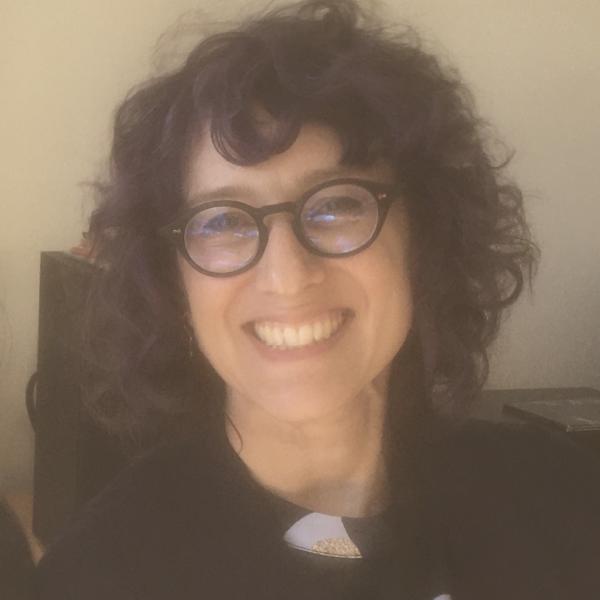
Zoë Druick
Zoë Druick is Professor of Communication at Simon Fraser University. Her research considers histories, theories,and trajectories of documentary and reality-based media with an emphasis on their intersection with biopolitical projects. This work has brought her into contact with numerous archives and developed her awareness of their precarity. She is author or editor of five books, including Cinephemera: Archives, Ephemeral Cinema, and New Screen Histories in Canada (McGill-Queen's) and The Grierson Effect: Documentary’s International Movement (BFI). Current projects include a SSHRC-funded project on the legacies of the NFB's Studio D, the women's studio, and a manuscript on UNESCO's biopolitical media strategies.
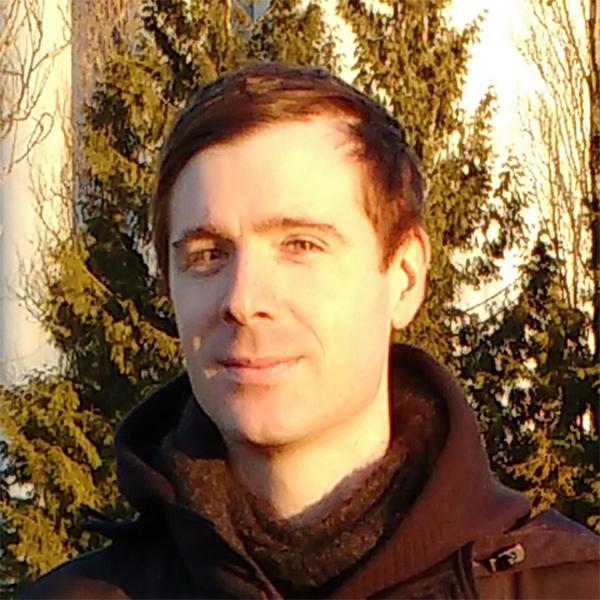
Sydney Hart
Sydney Hart is a writer and artist. He received a PhD in Cultural Studies from Queen’s University (2021), where he continues to work as Teaching Fellow in the Department of Film and Media. Through his critical writing and artistic research, Sydney is interested in critically examining the media of contemporary logistics and extractivism in Canada. Sydney’s critical writing on art and digital media has appeared in magazines including C Magazine and Esse arts + opinions, and in journals including Synoptique and Intermédialités. He is based on the unceded territories of the Musqueam, Squamish and Tsleil-Waututh First Nations in Vancouver.
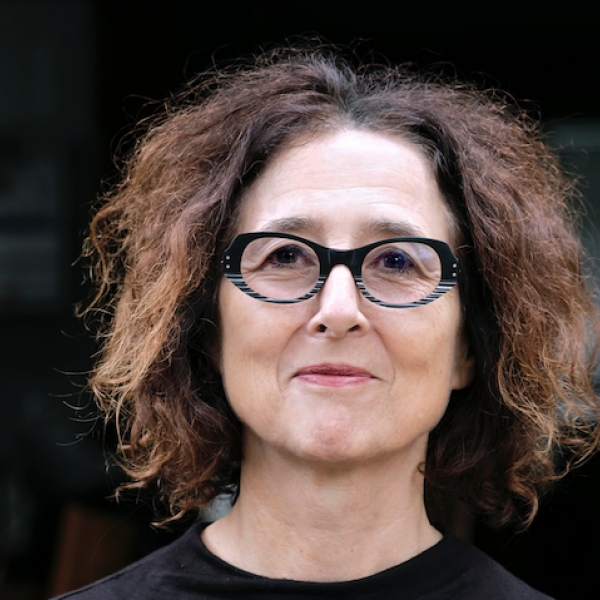
Brenda Longfellow
Brenda teaches in the Department of Cinema and Media Arts at York University and has published extensively on documentary, feminist film theory, and Canadian and Québec cinema. Her documentaries have been screened and broadcast internationally winning awards including Best Cultural Documentary for Tina in Mexico (2002) at the Havana International Film Festival, a Canadian Genie for Shadowmaker/Gwendolyn MacEwen, Poet (1998), and the Grand Prix at Oberhausen for Our Marilyn (1988).
Her work has included feminist archival projects as well as a series of short films, and a television documentary exploring the tenacity of fossil fuel addiction. Her interactive documentary, Offshore (2012) is available at http://offshore-interactive.com. She is currently working on a co-created documentary project and installation with formerly incarcerated women in Vancouver.
Cait McKinney
Cait McKinney is Assistant Professor of Communication at Simon Fraser University, the author of Information Activism: A Queer History of Lesbian Media Technologies (Duke, 2020), and coeditor of Inside Killjoy's Kastle: Dykey Ghosts, Feminist Monsters, and other Lesbian Hauntings (UBC, 2019). McKinney is interested in how queer social movements use digital technologies to build alternative information infrastructures. Their current research is on activist responses to early online content regulations; the intertwined histories of AIDS Activism and digital technologies; and the ways sexuality has been used to explain data and databases since the mid 20th century. McKinney's ongoing collaborations with the artist Hazel Meyer explore shared attachments to queer histories through writing, performance, video, and other archival interventions.


